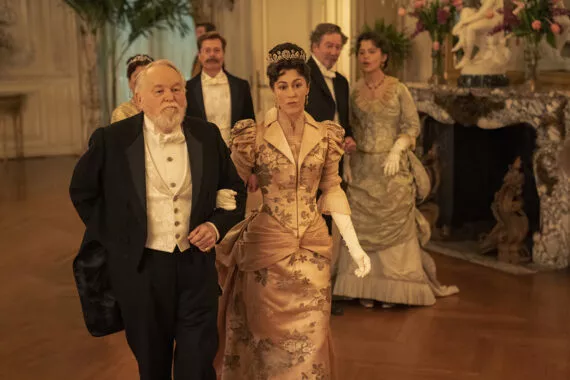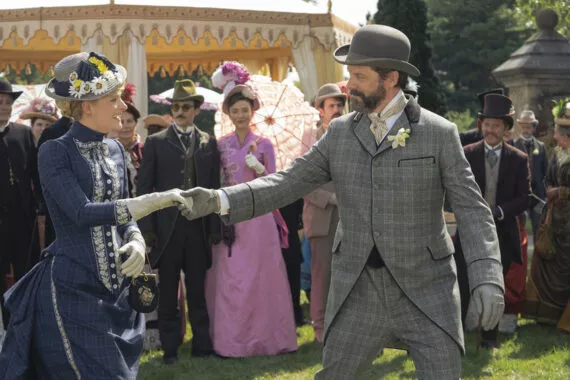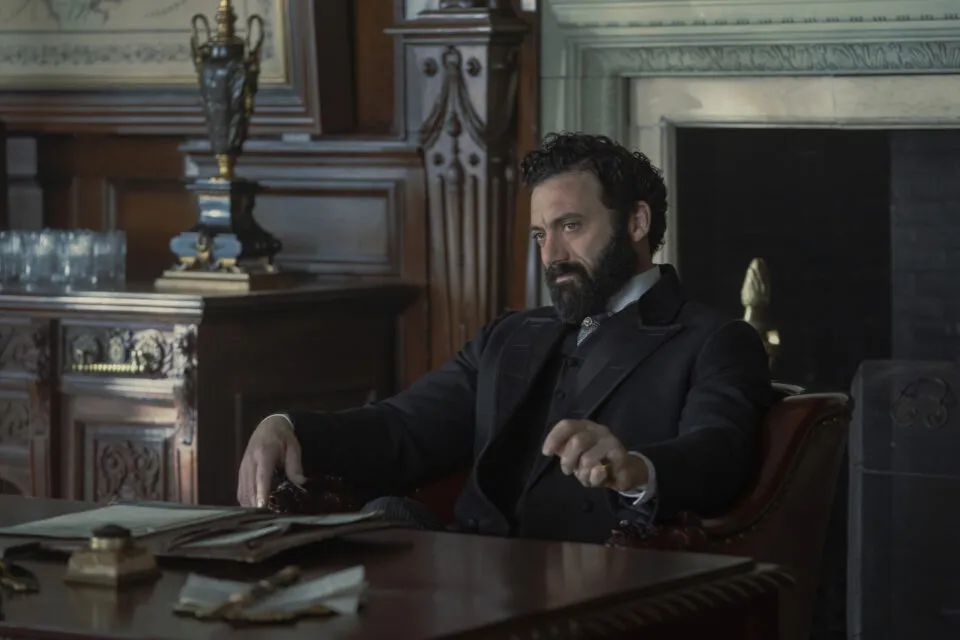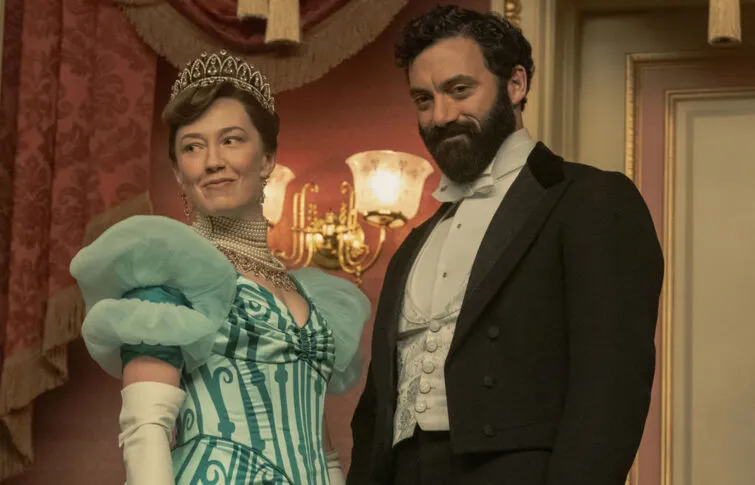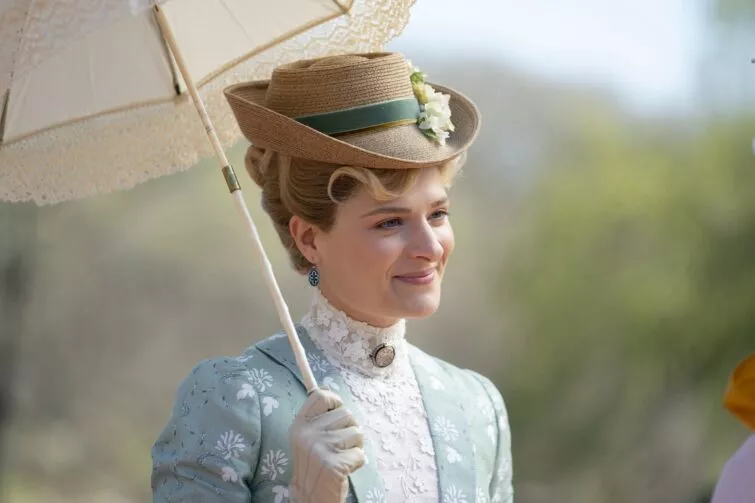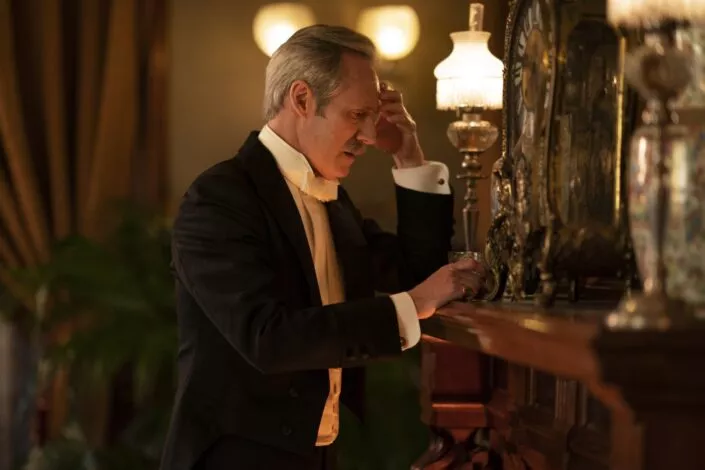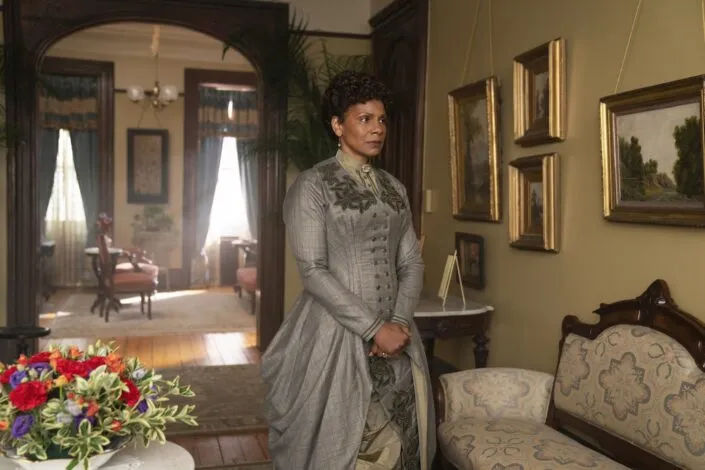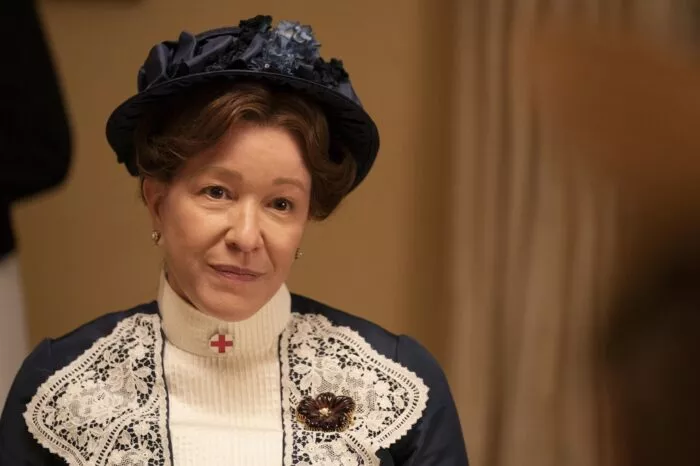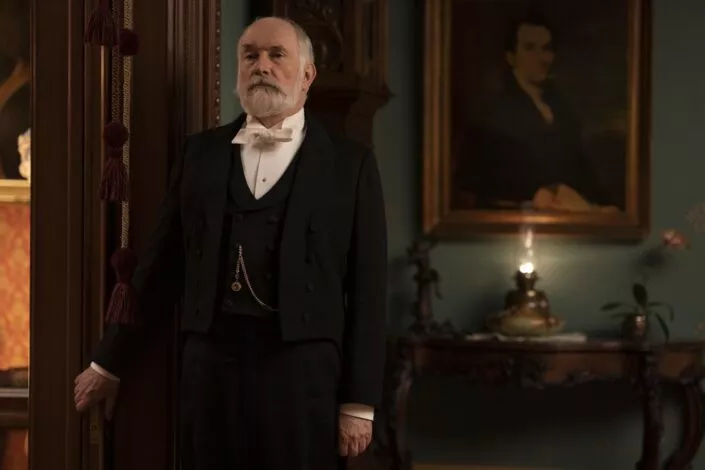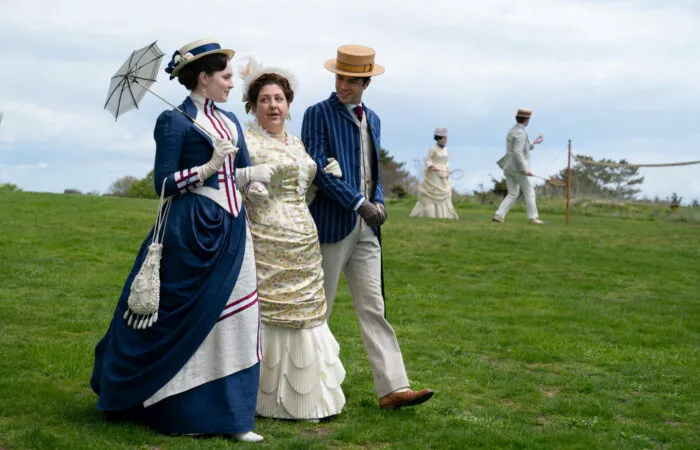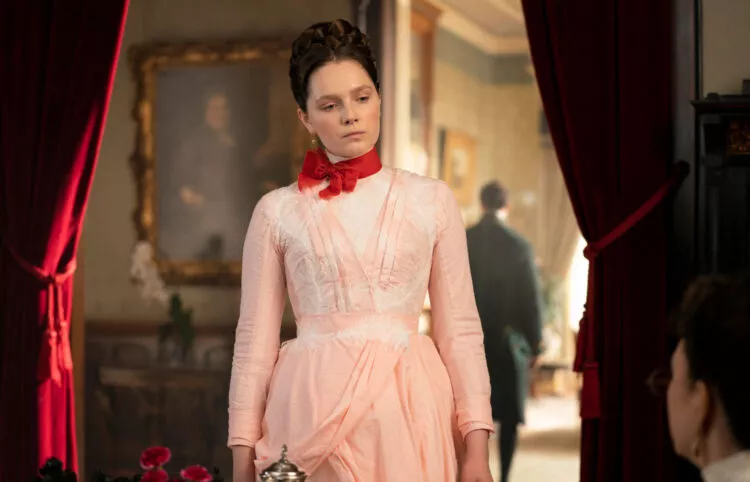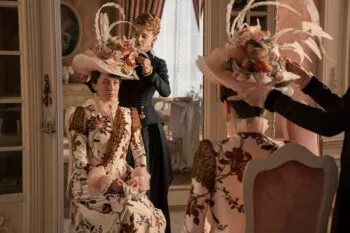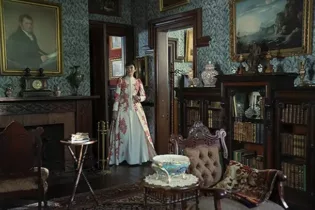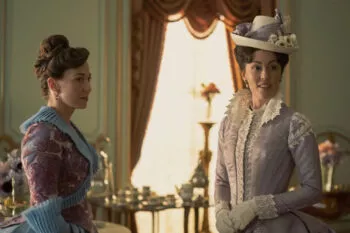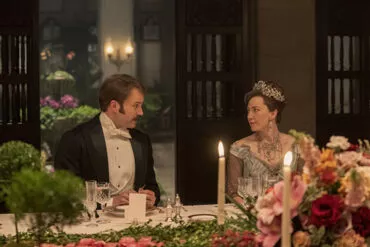Episode 7, “Irresistible Change”
As a historic moment captures the city, Agnes vows to protect her family’s reputation, while Larry’s career plans rub George the wrong way.
In this Episode…
☞ While the introduction of electricity was exciting and life-changing, it was not considered reliable or consistent for many years. Most lighting fixtures in our sites like Marble House and The Breakers are outfitted for both gas and electricity.
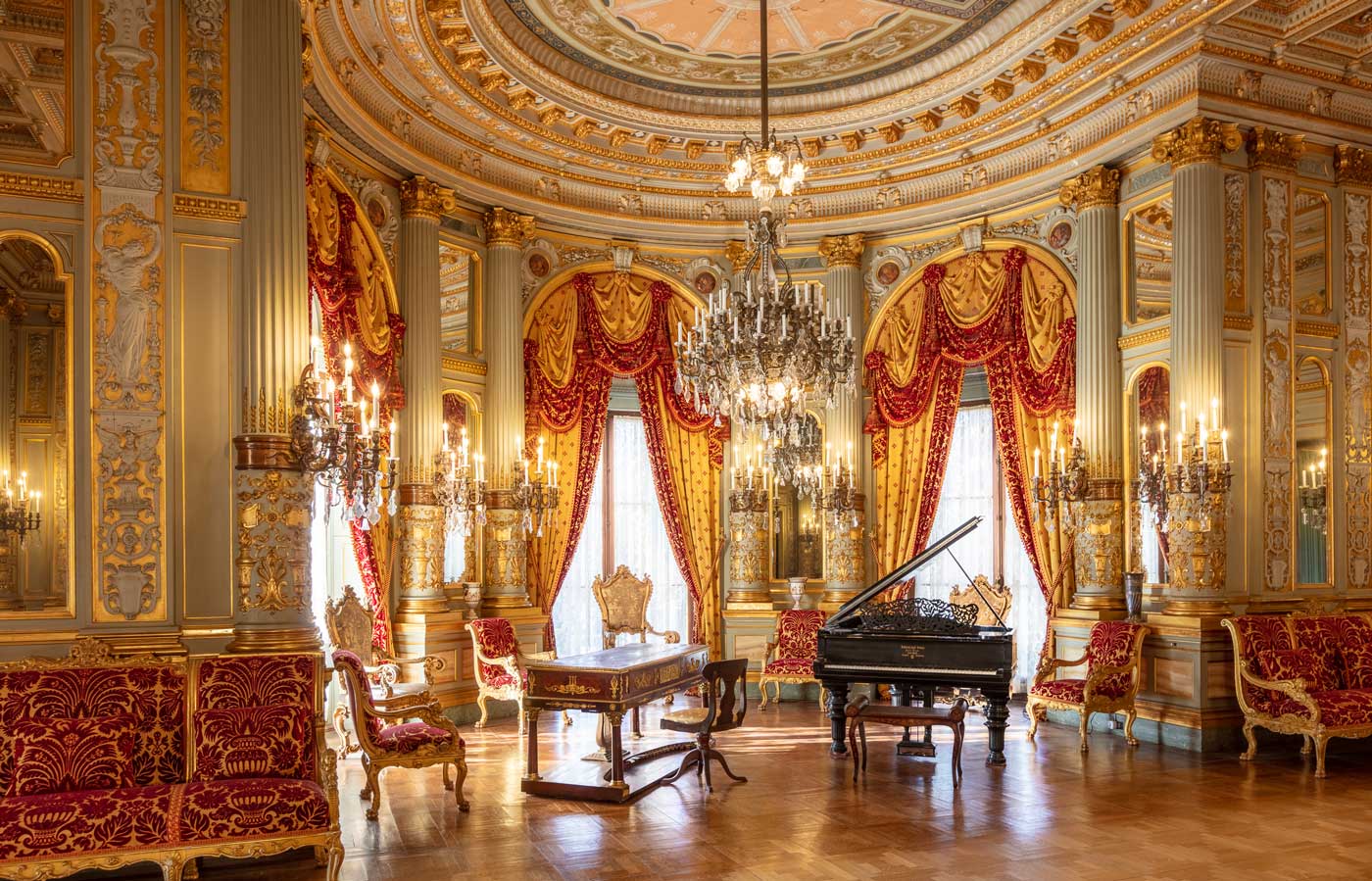
☞ The Breakers Music Room is featured again as the Russells’ ballroom (see Episode 2). The Music Room features the Vanderbilts’ original Steinway piano. The room was constructed by Allard & Sons in France down to the last detail, then was disassembled and shipped to the United States for reassembly inside the house
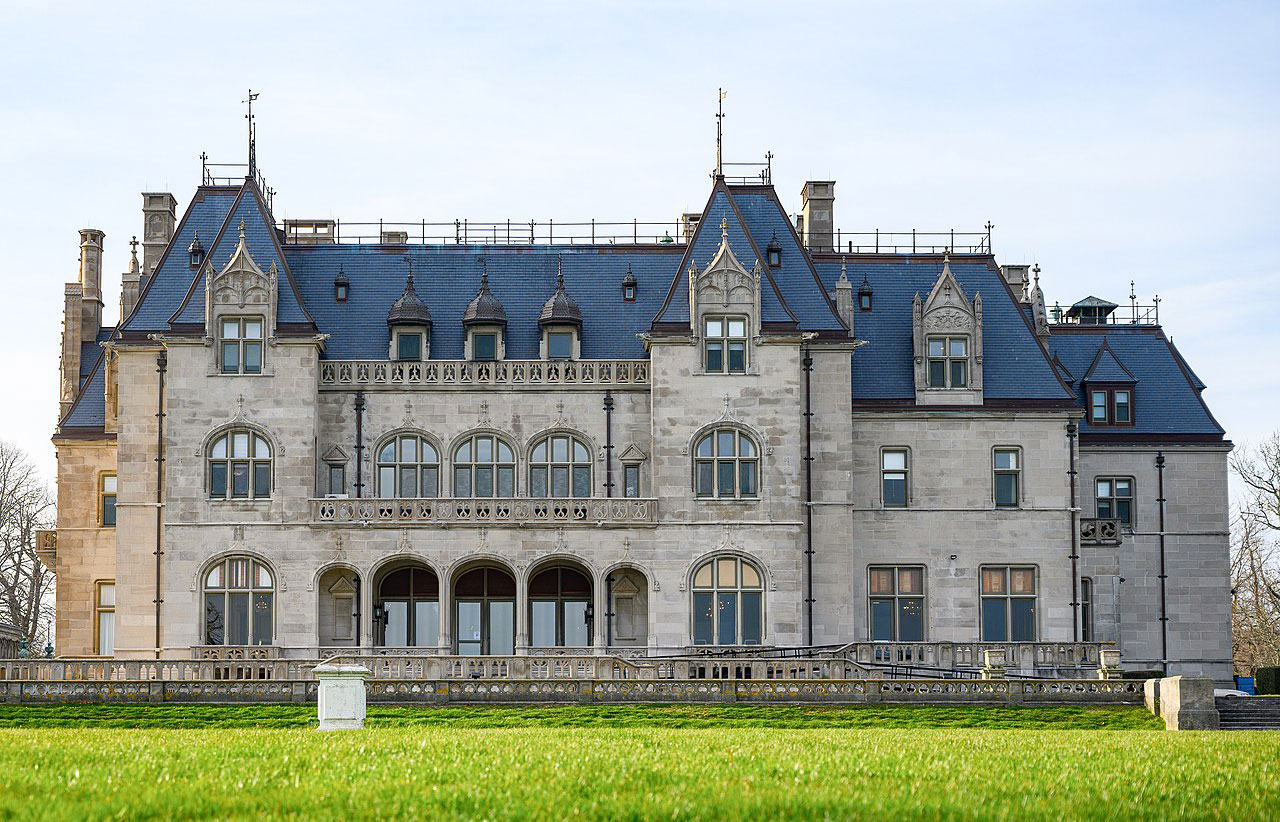
☞ The front façade of Rosecliff appears as the exterior of Mrs. Chamberlain’s house in New York. In contrast to Rosecliff’s real setting, with an expansive front lawn and plenty of space between it and its neighbors, “The Gilded Age” uses CGI (computer generated imagery) technology to make the house abut a city street with a brownstone building right next to it.
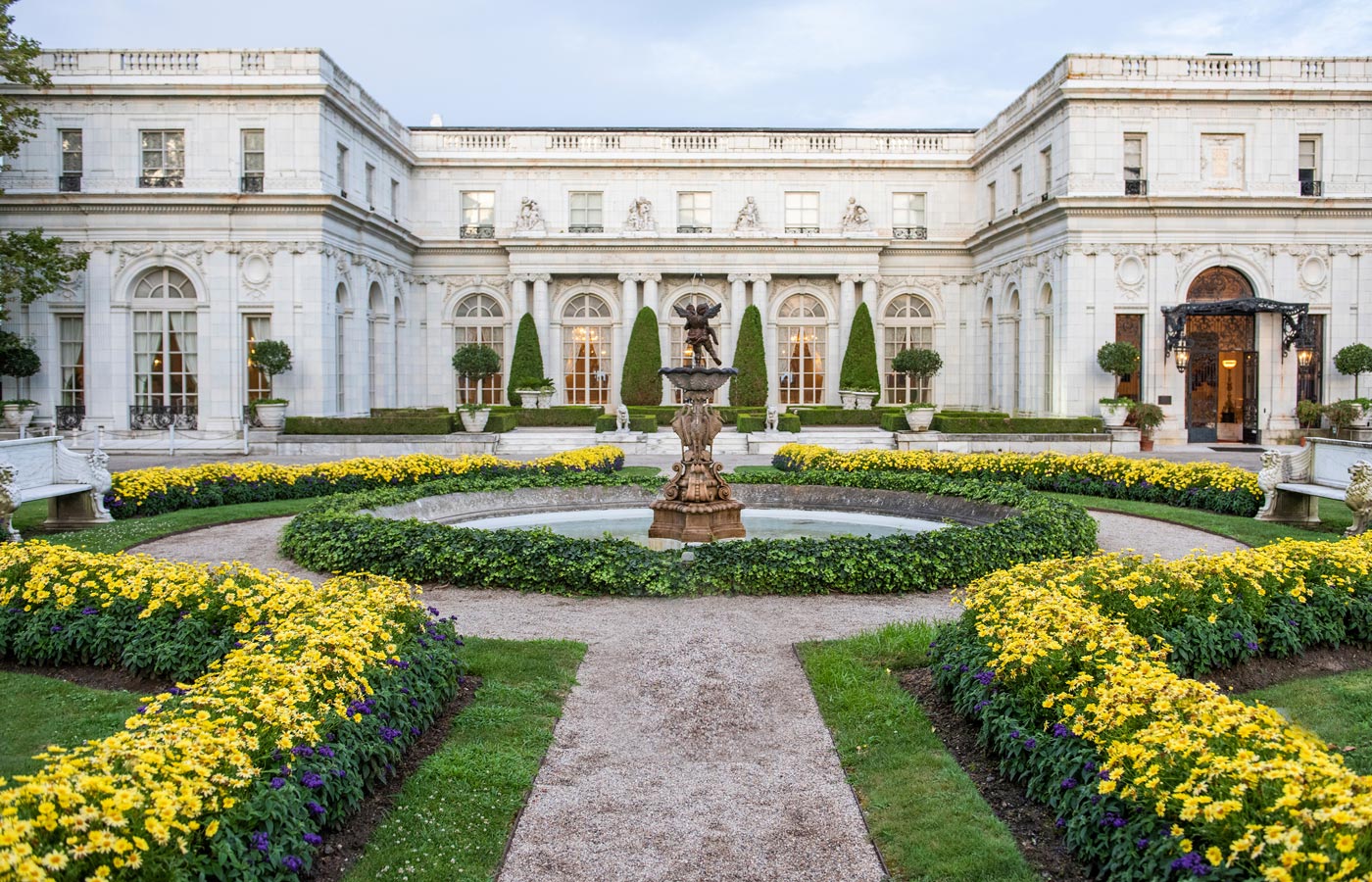
☞ Consuelo Vanderbilt’s bedroom in Marble House again appears as Mr. Russell’s bedroom.
☞ Park Row illuminated by Thomas Edison: this was a street in lower Manhattan known as “newspaper row,” far from the homes of the elite in Upper Manhattan. The real building Edison lit up was that of The New York Times. Edison did flip the switch at Pearl Street Station, the first central power station in the world, on September 4, 1882. However, the event took place at 3 p.m., not at the later hour depicted in the show.
☞ Lewis Howard Latimer, an African-American inventor, patented a carbon filament for the incandescent bulb in 1881; he worked with Alexander Graham Bell and Thomas Edison. His home in Flushing, N.Y., is a historic house museum.
☞ The McAllisters in Newport: Ward and Sarah McAllister socialized in Newport but their primary residence was Bayside Farm in Middletown. He hosted his famous picnics both in Middletown and Newport. “My little farm dinners gained such a reputation that my friends would say to me: ‘Now, remember, leave me out of your ceremonious dinners as you choose, but always include me in those given at your farm, or I’ll never forgive you.’”
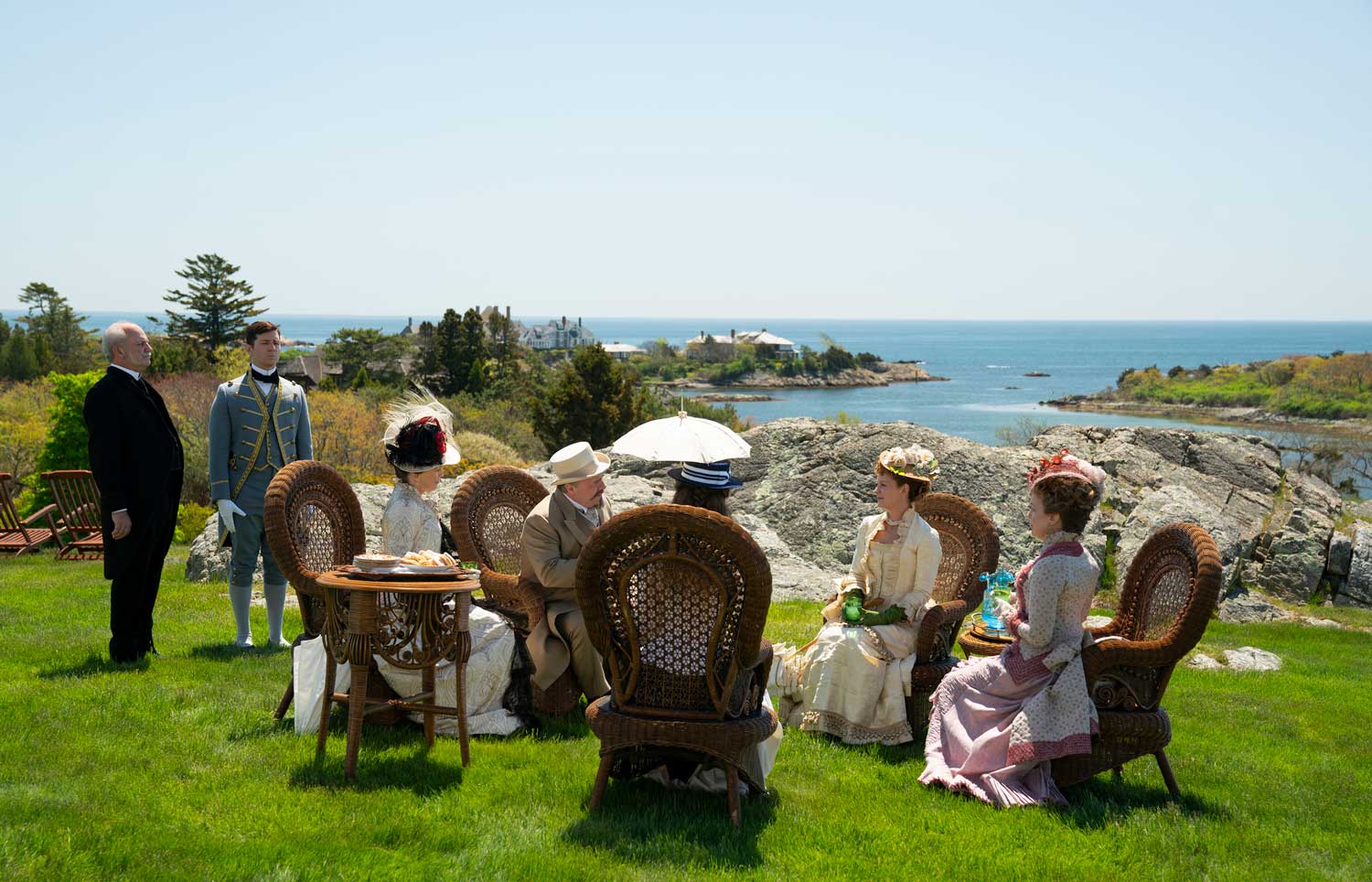
Photograph by Alison Cohen Rosa/HBO
